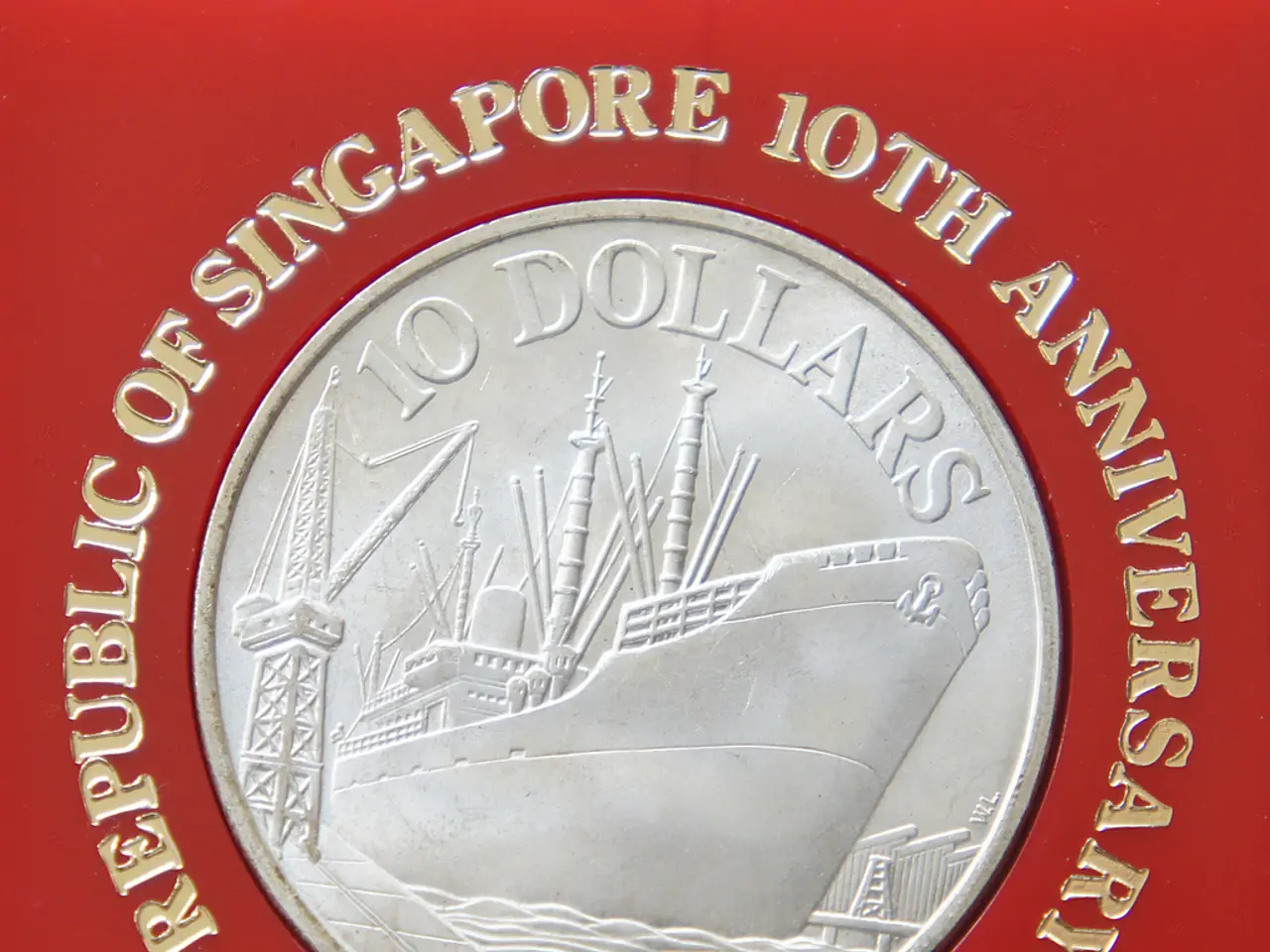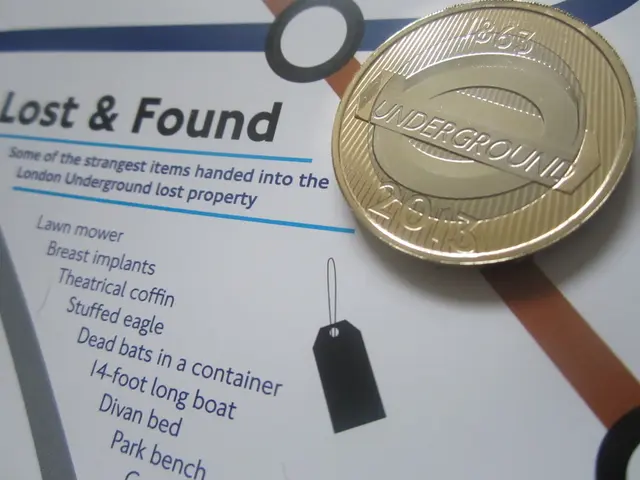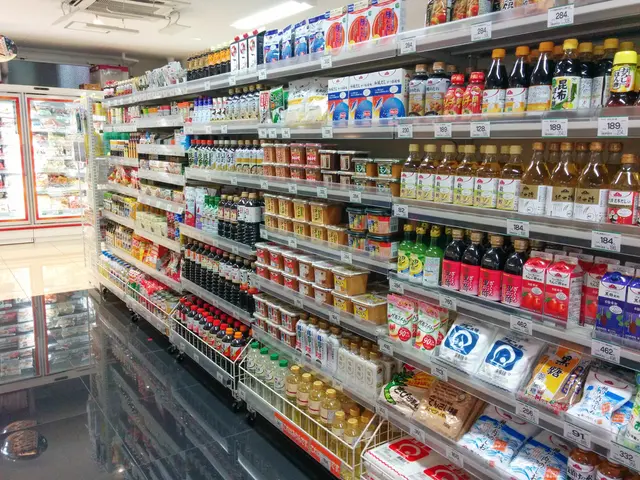Central Bank maintains interest rates, expressing worry over potential US tariffs impact
The ongoing trade dispute between the EU and the USA, characterized by US threats to raise tariffs on EU goods up to 30% starting August 1, 2025, has significant implications for the European Central Bank's (ECB) monetary policy and inflation dynamics in the Eurozone.
President Christine Lagarde has stated that the ECB is in a good position to wait, as it faces a delicate balancing act between inflation concerns and the risks of weakening economic momentum due to trade frictions.
Impact on the ECB's Monetary Policy
The imposition of elevated tariffs by the US on EU exports, given the US is the EU’s largest export market, risks disrupting transatlantic supply chains and increasing costs for European exporters. Such trade tensions are likely to generate upward pressure on Eurozone inflation through increased import prices and costlier intermediate goods, complicating the ECB’s inflation targeting task amid already uncertain global economic conditions.
If inflation rises due to tariff-driven cost-push factors, the ECB could consider tightening monetary policy (raising interest rates) to anchor inflation expectations. However, tighter policy risks weakening Eurozone economic growth, already vulnerable to trade disruptions and weaker external demand. Conversely, if trade tensions lead to slower Eurozone export growth and economic activity, the ECB might need to maintain or even ease monetary policy to support the economy, potentially accepting higher inflation in the short term.
Effect on Inflation in the Eurozone
The tariff increases would directly raise prices for goods imported from the US and increase production costs within the Eurozone for goods reliant on US inputs or affected by disrupted supply chains. Economists warn these trade disputes could drive consumer prices higher on both sides of the Atlantic, signaling that Eurozone inflation could see an upward push due to this tariff escalation.
However, the exact timing and magnitude of inflationary impact depend on business responses, such as supply chain localization efforts and negotiation outcomes, as well as broader global economic adjustments.
Additional Context
The EU is preparing retaliatory tariffs on approximately €93 billion of US imports, which could further escalate costs and inflationary pressures within the Eurozone. Negotiations continue with the US aiming to reduce tariffs to around 10% on EU imports, but strategic sectors remain contentious, keeping the trade landscape uncertain.
Banks are preparing for an impending end to the ECB's interest rate cuts due to uncertainty over US tariffs. The ECB expects economic growth in the Eurozone to be only 0.9 percent this year. Jörg Asmussen, CEO of the German Insurance Association (GDV), stated that the decision to maintain the current interest rate level sends an important signal of stability and flexibility.
The ECB's primary goal is stable prices, as higher inflation reduces purchasing power for people. The deposit rate, crucial for banks and savers, remains at 2.0 percent. Savers may be at a disadvantage due to reduced deposit rates as banks receive lower interest rates for funds parked at the ECB.
Central banks aim to avoid persistently falling prices, as companies and consumers might delay investments in hopes of even lower prices, which would slow down the economy. Lower interest rates boost the economy, making loans cheaper for businesses and consumers. This means the inflation wave, triggered by the Ukraine war, has broken.
The latest ECB forecast shows that inflation in the euro area is expected to be 2.0 percent this year, but could undershoot the central bank's target, reaching 1.6 percent by 2026. Economists fear a rise in inflation if the EU imposes its prepared multi-billion-euro counter-tariffs. The inflation rate in the Eurozone has significantly decreased, standing at 2.0 percent in June according to Eurostat.
In summary, the US-EU trade dispute exerts dual upward and downward forces on the Eurozone economy: potential tariff-driven inflation pushing the ECB toward tightening, contrasted with slower growth pressures suggesting monetary accommodation. The ECB's policy response will likely balance inflation concerns against the risks of weakening economic momentum due to trade frictions. The situation remains fluid, depending on tariff implementations, negotiations, and global trade realignments.
- As a result of the tariffs, banks are preparing for an impending end to the ECB's interest rate cuts, as the ongoing trade dispute between the EU and the USA could affect the finance sector, given the potential increase in costs for European exporters and the implications for the ECB's monetary policy.
- If the EU imposes its prepared retaliatory tariffs on US imports, it could further escalate costs and inflationary pressures within the Eurozone, impacting businesses and potentially requiring the ECB to maintain or ease monetary policy to support economic growth.








